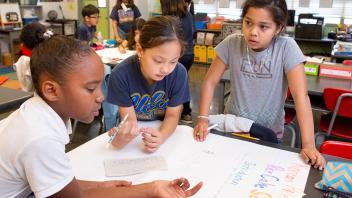Summer of this year marks several things worth remembering. Some are happy anniversaries, others not so at all.
What do these events mean to children? Are they relevant to them in any way at all? What do stories — real or fictional — offer to children? Can they inspire as well as inform?
It was in July 1969 that Neil Armstrong left the relative safety of his spacecraft to walk on the moon. Many books are available about Apollo 11, about the moon itself and this special anniversary.
Nelson Mandela, stalwart leader of South Africa and the world, celebrated his 91st birthday this month. Frankly, a recent and accessible biography for young readers would be useful.
Anne Frank, the Jewish child who left a diary in revealing daily life in hiding during German occupation of Amsterdam, would have turned 80 years old this year. Instead, she perished in a concentration camp; this year marks the 65th year since SS Sergeant Karl Silberbauer arrested her.
A new book about how Simon Wiesenthal identified Anne’s captor — proving once and for all that her diary was authentic — is tough but valuable reading. Don’t let the picture book format fool readers into thinking that this is a book for younger children. The Anne Frank Case: Simon Wiesenthal’s Search for the Truth (Holiday House) by Susan Goldman Rubin tells a difficult though riveting story and is most appropriate for grades four and above.
Carefully chosen books can share stories in memorable ways, perhaps at least familiarizing adults with real stories to share (or choose not to share) with children.

